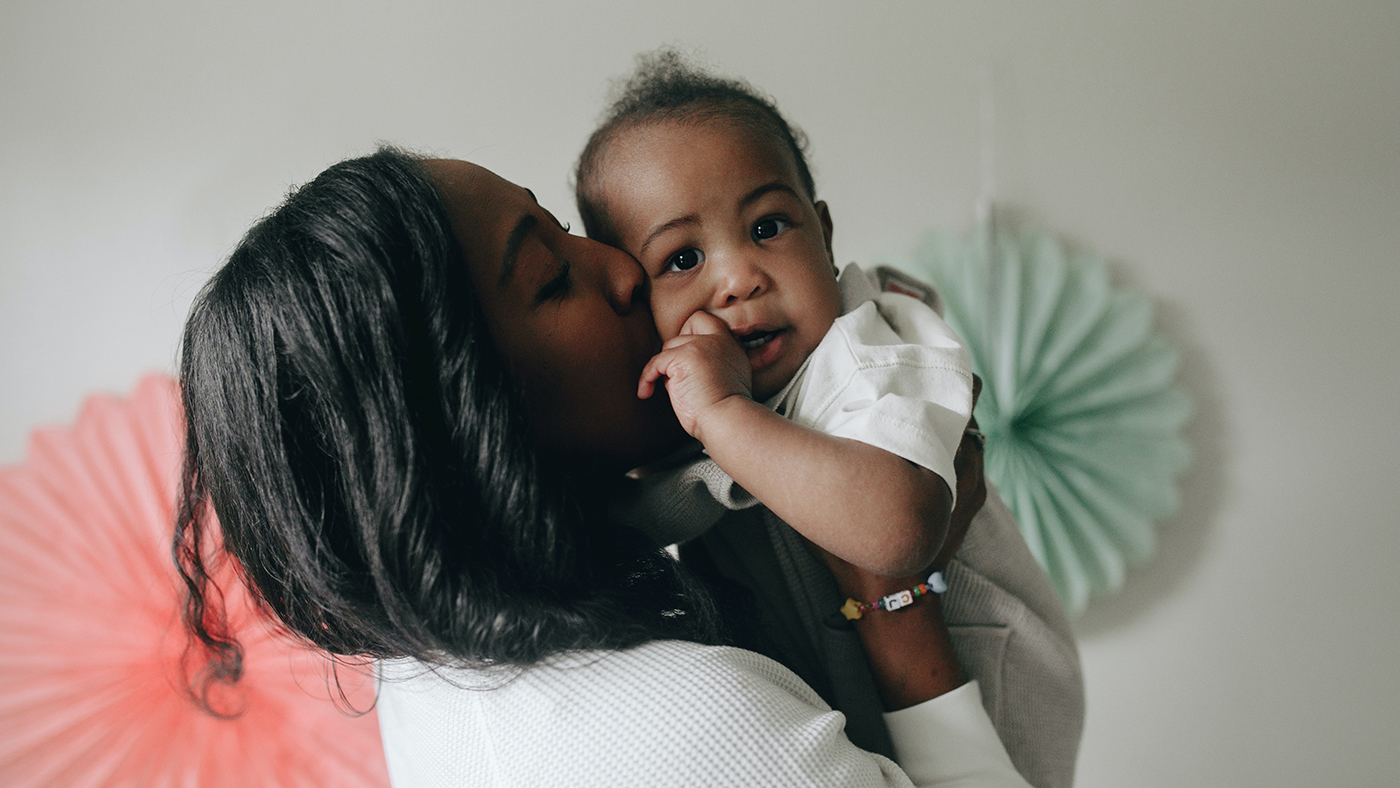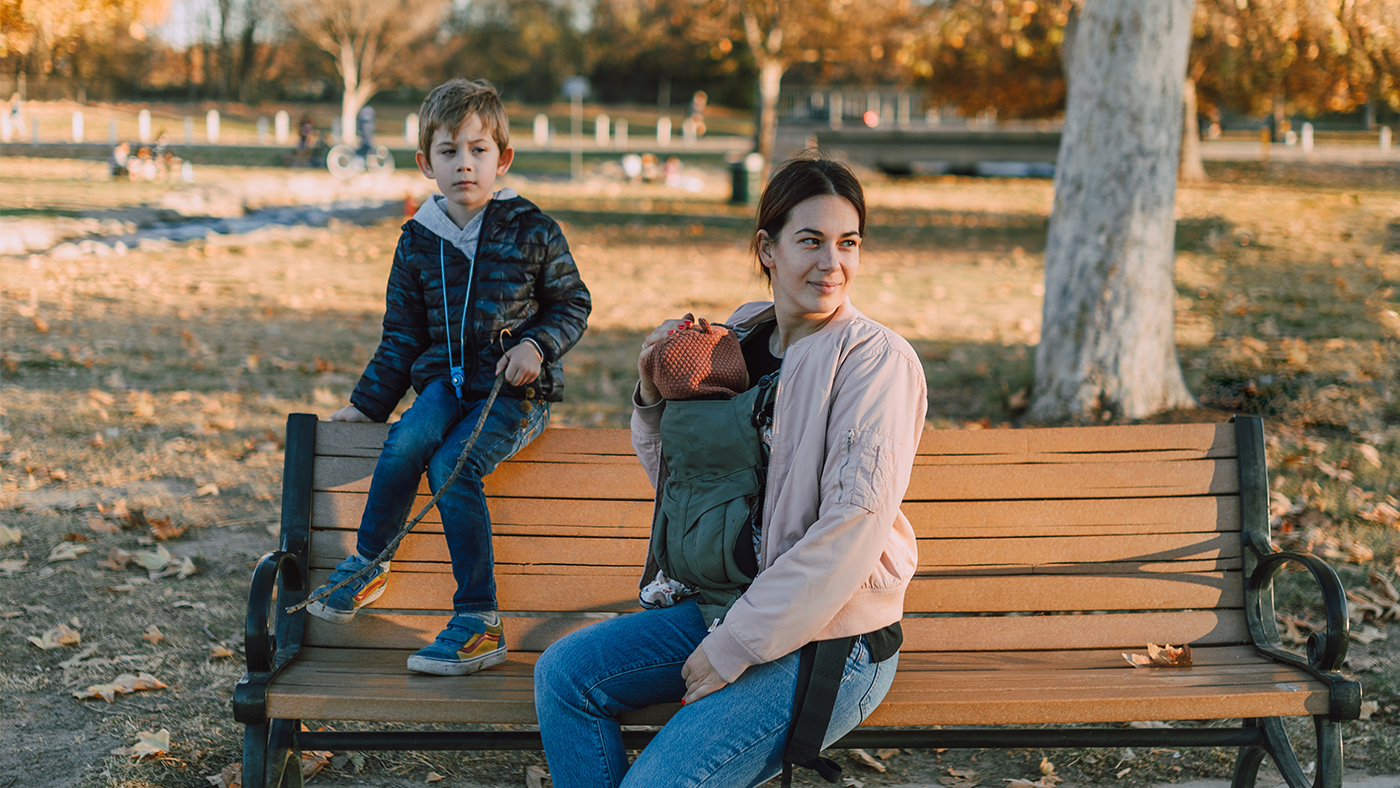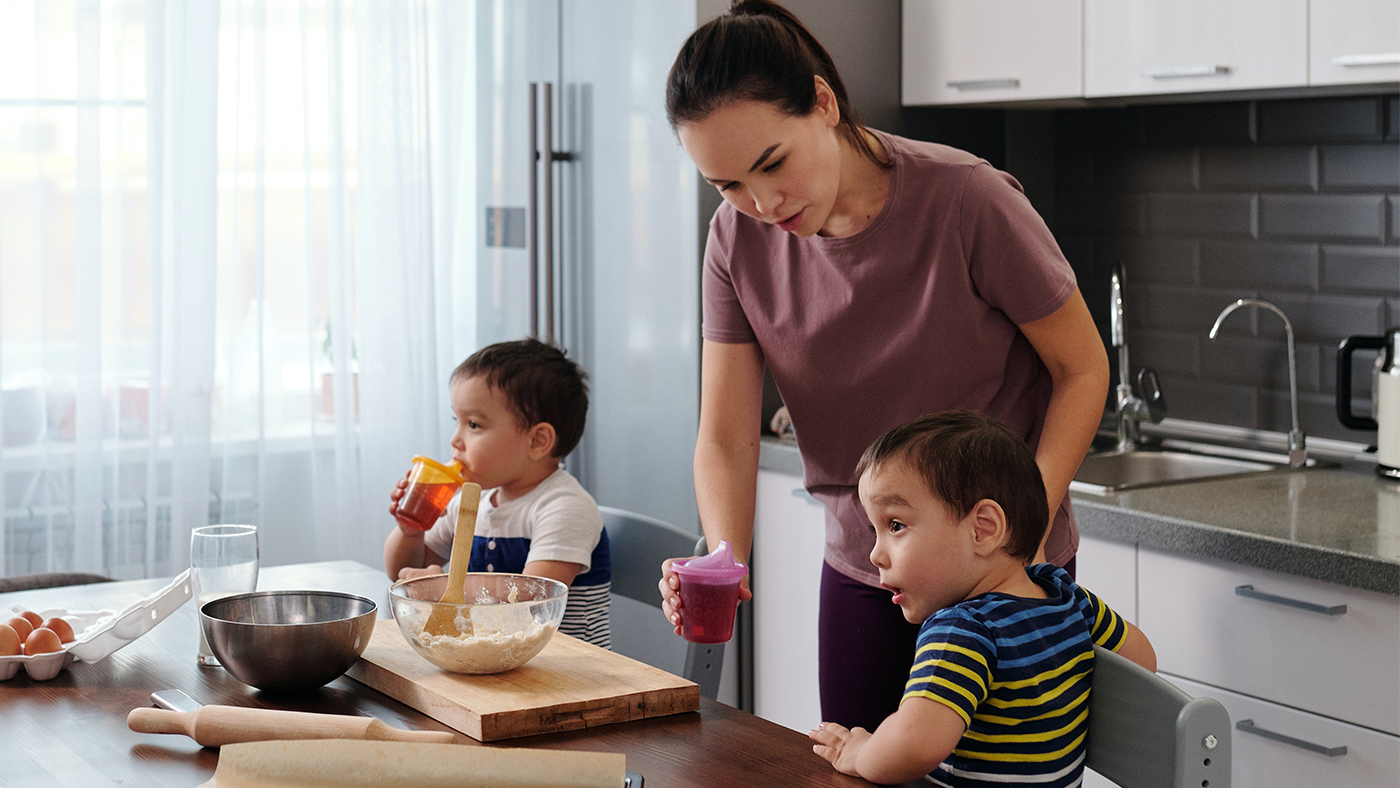Choices for children
- Parenting,
- personal and social

Becoming a parent is hard. Part of what makes it hard is the unrealistic narrative about what parenthood should look like or feel like. Right from the start, you may be aware of the expectations of others around your behaviour and your child’s behaviour, from people you know well, or even people you don’t know at all. This may come in the form of advice such as:
“You will spoil him if you're not careful.”
“I can see, he is testing your boundaries.”
Sound familiar?
These phrases were said to me early in my parenting journey. They made me doubt my approach and dented my confidence and trust in my instincts. They fit with a dominant narrative around parenting which uses language to describe children as manipulative, attention-seeking, controlling, resistant and defiant, with skills such as testing limits and pushing buttons. Alongside this, parents may be described as controlling and bossy or, at the other end of the scale, permissive or inconsistent.
At My First Five Years we think this narrative, which places judgement on our own behaviour, and our child’s, is unhelpful (and potentially damaging to new parents' mental health), so we aim to disrupt it with information and advice based in science and research. This will not only empower you as a parent but will also to empower your child. Yes, we believe is possible, to do both at the same time! Read on to find out more…

Conflict with our child is unavoidable
Most of us have come to accept a little bit of conflict and disagreement in our lives as ‘normal’ and we have learned ways of handling it. Some conflicts can be small one-off disagreements which are short lived, others feel more serious and can lead to resentment, or stand-offs that come up over and over again, Ideally, it would be lovely if conflict did not exist in the world, but the reality is it does and it always will, whenever humans interact together. One thing we find as parents is, that as our children grow, so do their opinions!
Although, situations of conflict or differing opinions between you and your child can feel tricky to navigate, the goal is not to eliminate them, as not only would this would be impossible, but trying to find healthy constructive ways to give everyone a say can actually offer lots of opportunity for learning.
We want our children to grow to be independent adults rather than co-dependent. Dr. Becky Kennedy a clinical psychologist, defines co-dependence as adults who struggle to identify who they are and what they need as independent from others. So, their sense of self is dependent on the approval or wellbeing of others.[1]
Exploring decision-making together empowers your child to find their voice, to feel and trust their own needs are important and to believe that they can make a contribution that is useful to the family and beyond.

Expressing opinions and desires - the concept of ‘yes’ and ‘no’
‘The oldest, shortest words - yes and no - are those which require the most thought.’
Pythagoras of Samos, sixth century BC.[2]
Even before your child begins to use the word ‘no’ they might begin to apply the concept with a turn of the head, or other physical rejection such as pushing food or a toy away, with a frustrated cry.
Research considers that, ‘yes’ and ‘no’ are both big concepts, but no is more interesting, more important and more ancient. Each yes or no decision is a binary choice, but logically and linguistically ‘yes’ has less force than ‘no’. A response of ‘yes’ just affirms the preceding action, statement or question, while no is totally transformative.[2]
Children may enjoy discovering the force of "No!" It feels good to take control over what happens to you and around you! It certainly transforms the situation by leading to further exploration, negotiation and adaptation
As your baby grows and becomes a toddler, they will become more skilled at communicating their wishes, and have more options for expressing displeasure if those desires are thwarted. Along with this ability of course, comes the potential for conflict! That’s why we can sometimes have mixed feelings about our young children’s growing mastery.
As your child develops further, there are even more possibilities, as you can now refer to your child’s growing experience, reflect together and use more complex language skills to reason through and work things out together.
Listening to opinions and giving choices
We have seen that conflict arises from a difference of opinion, often about the best way to meet a need. So, although you and your child may both share a same need, such as hunger for example, you may differ on your ideas about how to best meet that need, so your child may want to meet it through eating pizza, you may prefer to eat vegetables, (or of course the other way round!).
You and your child may share the need to keep warm on a cold day, you may decide to wear a coat but your child may decide they are warm enough in their jumper.
There is research that argues that children are born not only with certain basic needs, including a need to have some say over their own lives, but also with the ability to make decisions in a way that meets their needs; they’re equipped with “a gyroscope of natural self-regulation. When we control kids excessively - for example, by offering them rewards and praise for doing what we want—they start to become dependent on external sources of control. The gyroscope begins to wobble and they lose their ability to regulate themselves.[2]
If too much external regulation can interfere with the development of internal regulation, how do we get the balance right? It may be helpful to reframe our thinking, and so shift our own goal. Specifically, it’s may be useful if our main question isn’t “How do I get my child to do what I say?” but rather “What does my child need and how can I meet those needs?”

Meeting your child’s needs
The UN Convention on the Rights of the Child, an international agreement around children’s rights, came into force in the UK in 1992. It enshrines the right of children to have their say;
Article 12 (respect for the views of the child)
‘Every child has the right to express their views, feelings and wishes in all matters affecting them, and to have their views considered and taken seriously. This right applies at all times, for example during immigration proceedings, housing decisions or the child’s day-to-day home life’ [3].
We can see that focusing on children’s needs, and working with children to make sure their needs are met, constitutes a commitment to taking children seriously. It involves having a view of children that means treating them as people whose feelings and desires and questions matter. We know that in some instances a child’s preferences can’t always be accommodated, but they can always be considered and they need never be dismissed out of hand. It’s important to see a child as someone with a unique point of view, with very real fears and concerns (often quite different from our own), and with a distinctive way of reasoning (which is not merely “cute”) [4].
It’s is important for children to experience a sense of autonomy and control, a feeling that we are the initiators of much of what they do. The way children learn to make good decisions is by making decisions, not by following other peoples’ directions.
What if there are times when my child can’t make choices or decisions?
Whilst acknowledging the benefits of including children in decisions or choices that affect them, we know that there will inevitably be times when children (and adults) aren’t always permitted to participate in decision making. Democracy maybe absent from some situations, such as perhaps when your child starts school and wears uniform, or even in later life in the workplace. But we would argue that the best way to prepare children for experiences where they may be unnecessarily controlled is not to immerse them in similar experiences beforehand.
Research argues, giving children a foundation, which shows them their voice is important to allow them to evaluate any controlling people and institutions they’ll eventually face by applying the values they encountered while growing up. It also means they’ll be more likely to work for positive changes in our society rather than just accepting power-based arrangements as they are or believing those arrangements are inevitable. In short, empowered children are in the best position to deal constructively with disempowering circumstances [5].
My First Five Years suggest some tips which we hope will support you to encourage your child to become involved in decision-making and become confident at making the choices which suit them best.

Top tips
Limiting our own power
This doesn’t mean we need to be silent about our own preferences, but where possible leave some decisions with our child. If there is a compelling reason to override their decision, we should aim to justify to them (and ourselves), why they cannot choose.
Ask for your child’s opinion
Even when you may be unable to give your child the final word, you can still give a chance to voice their opinion and preference. If we ask “What do you think?” We are letting them know that their viewpoint is important.
Start young!
Even babies can be allowed to make choices. They may demonstrate very clear preferences for when they want to be held, whether they like to be tickled, which toy they’d rather play with, and so on. It’s important that we tune in to what they’re telling us and try to support their requests.
Be authentic
Sometimes it might be tempting to hide behind the role of ‘Dad’ or ‘Mum’ or ‘expert’. Letting our children see we are real people with needs of our own, things that we enjoy doing, and things we dislike is important. Real people like us sometimes are unsure what to do, need to think through options, weigh up possibilities or even get a little flustered. They’re not always sure what to do. Sometimes we may worry this will make our child feel unsafe, but we are in reality honestly modelling dealing with situations they will enviably encounter and the associated feelings. Children are often more perceptive to our feelings and emotions than we realise, even if we think we are hiding them successfully!
Keep your eye on the long term
We all get immersed in the day-to-day details of everyday life. Try to keep one eye on the longer-term goal of raising a questioning, self-reliant and independent human!
References
[1] Dr. Kennedy, B. (Accessed January 2022) https://goodinside.com/podcast/
[2] Addyman, C. (2020) The Laughing Baby: The extraordinary science behind what makes babies happy (Hardback) London:Unbound
[3] UN Convention on the Right of the Child. (UK 1992) https://www.unicef.org.uk/what-we-do/un-convention-child-rights/
[4] Kohn A. (2006) Unconditional Parenting: Moving from Rewards and Punishments to Love and Reason Atria
